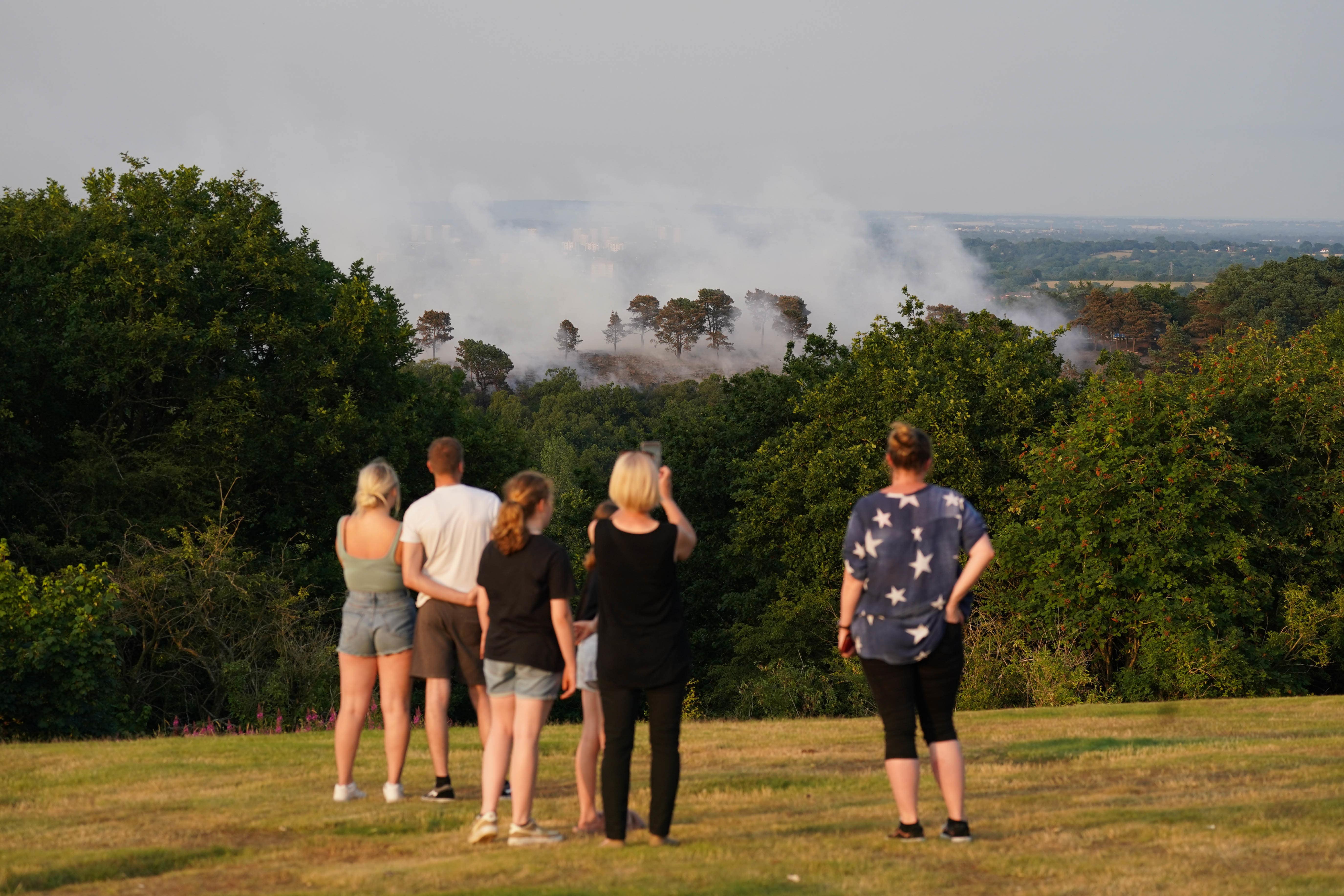Summer 2022 was ‘a sign of things to come’ for UK climate, says Met Office
The hottest year ever recorded in the UK will be considered cool by the standards of 2100, according to future projections.

Your support helps us to tell the story
From reproductive rights to climate change to Big Tech, The Independent is on the ground when the story is developing. Whether it's investigating the financials of Elon Musk's pro-Trump PAC or producing our latest documentary, 'The A Word', which shines a light on the American women fighting for reproductive rights, we know how important it is to parse out the facts from the messaging.
At such a critical moment in US history, we need reporters on the ground. Your donation allows us to keep sending journalists to speak to both sides of the story.
The Independent is trusted by Americans across the entire political spectrum. And unlike many other quality news outlets, we choose not to lock Americans out of our reporting and analysis with paywalls. We believe quality journalism should be available to everyone, paid for by those who can afford it.
Your support makes all the difference.The hot, dry summer that saw 40C temperatures recorded in the UK for the first time ever with wildfires destroying houses and trees withering in the heat was a “sign of things to come” for the UK’s climate, scientists have said.
Not only was 2022 the hottest year in the UK on the Met Office records which began in 1884 but also on the Central England Temperature record – the longest-running series in the world – that stretches back to 1659.
These milestones for the UK climate show the direction of travel over the coming decades, the Met Office said, adding that as long as people continue to emit greenhouse gases unchecked the Earth will continue to heat up.
Mike Kendon, climate scientist at the Met Office and lead author of its new report, called State Of The UK Climate 2022, described the 40C mark as “a real moment of climate history”.
He said: “This was a rare event in the context of the current climate but our extremes of temperature are changing faster than our mean temperature and we know that climate change increases the frequency, duration and spatial extent of heat waves.”
On our current emissions trajectory, 2022 would be considered a cool year by the standards of 2100, Mr Kendon added.
Professor Liz Bentley, chief executive of the Royal Meteorological Society, said: “If you look at future climate projections, we are on a path to go for hotter, drier summers.
“So 2022 for me was very much a sign of things to come in future years with our changing climate.”
The Met Office report, which tracks the progress of the UK’s changing climate each year, noted that temperatures are rising above 36C more frequently than in the past.
Between 1961-1990 the highest average temperature was 31.3C; between 1991-2020 it was 33.5; between 2013-2022 it was 35.7C and in 2022 the highest actual temperature was 40.3C.
Data from a citizen science project called Nature’s Calendar was also included to track how plants and animals are responding to the changing seasons.
Fritha West, a research scientist with the Woodland Trust and one of the report’s authors, said 2022 had a mild February and a warm October which meant an early spring and a late autumn.
Leaves were on the trees for 16 days longer than the 1999-2021 average and some flowers and insects emerged days earlier than usual.
Last year was also a relatively dry year, though not as extreme as 1976, and while summers are getting hotter and drier, the year-long climate trends show the UK is getting wetter generally.
Five of the 10 wettest years in the UK since 1836 have occurred in the 21st century and the UK saw its wettest February, April, June, November and December on record in the years after 2009.
Sea levels are also continuing to rise due to the melting ice sheets in the polar regions with long term trends showing the rate has doubled in recent years compared to the 20th century, said report author Dr Svetlana Jevrejeva of the National Oceanography Centre.
The UK’s top political parties have openly talked about watering down their environmental policies after the narrow victory of the Conservatives in the Uxbridge and South Ruislip by-election, which many put down to opposition to the Ultra Low Emission Zone expansion plans.
Dr Jevrejeva said in response: “It is important which path we choose and which scenario we follow, but sea level will rise for the next few hundred years in any case.
“It just depends on what kind of rate of sea level rise we will see, because heat is already in the ocean and ice sheets have already started to lose ice mass and the glaciers are disappearing.
“To get to equilibrium point it will take a few hundred years. We try to communicate our science and to make clear our understanding of what could happen. That’s our role and that’s what we do.”